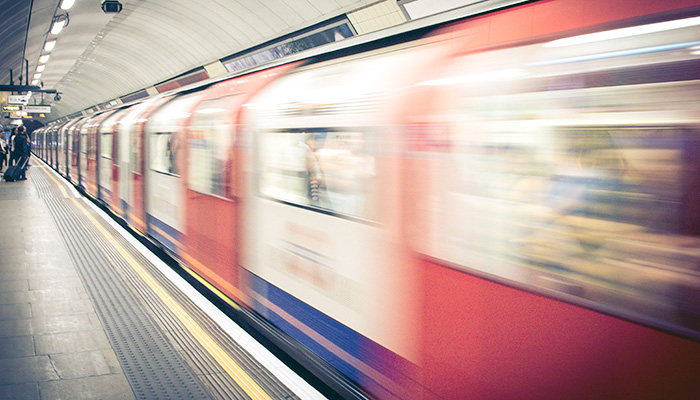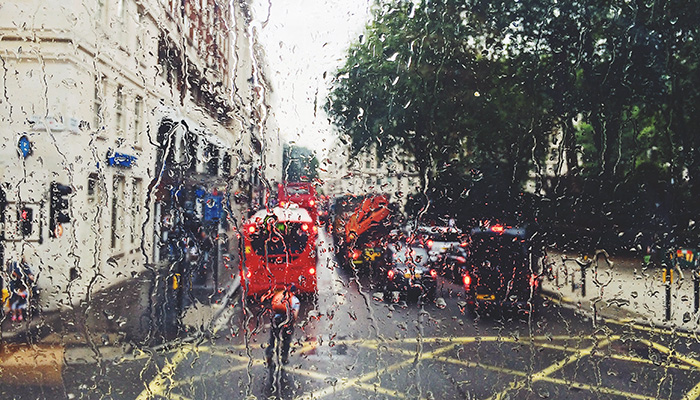London is one of the biggest centres for business in the world, and because of that, it’s also one of the most international. Approximately 37% of London’s population is born outside of the UK, including 24% born outside of Europe.
Whether for a better standard of living or job opportunities, London has a lot of expats who have had to learn about the…quirks, shall we say…of British culture.
At Hubble, we’re proud to have a very diverse office. We have team members from Australia, India, Singapore, Sweden, the US, and Canada, who have been here varying lengths of time.

I, personally, have lived and worked London for the past year, and have a lot of questions about the British.
I was born American, raised Canadian, and don’t deny that I, too, have some habits the rest of the world apparently doesn’t understand. For example, I think putting cheese curds on top of fries (chips, whatever) then drowning it with gravy is delicious, especially in the middle of the night. I also think that going to Walmart to buy red solo cups for a house party with beer kegs and wine in cardboard boxes is perfectly normal.
Keg stands are also cool (don’t worry about it).
Having been here for a year, I had a lot of questions for the room full of mostly British people that I work with.
1. What is a cheeky pint? What is a cheeky Nandos? Why is everything cheeky?

At least once a week, someone asks “Does anyone want a cheeky pint after work?” on the office Slack channel.
My reply is, why does the pint have to be “cheeky”? Why can you just go to the bar (sorry, pub) and have a normal pint.
I proceeded to ask the channel why everything is “cheeky.” They told me that it’s actually pretty hard to explain. I finally went on Urban Dictionary, which gave me this answer.

Or you could just go and have normal pint because it’s Hump Day, Friday, or hockey night in Canada or something and because there’s no real reason to sneak a beer when you can just have a beer.
2. How is it that you can go drink for the sake of drinking and not feel guilty or like alcoholics?
One of my colleagues mentioned that he always found it weird how other countries, particularly the US, need to find excuses to drink, like tying the volume into points in a game because, as he points out, “The British don’t adhere to any such impediments.”
I guess to avoid seeming like an alcoholic, saying pints are “cheeky” is the excuse?
Find an office where you can easily go for a cheeky pint after work.
3. Why do you greet people with “you alright?” Are you just saying hello? Do you actually care if I’m alright? Am I really alright?!
I’ve heard that the American “how are you?” is hard to understand because it’s used as a greeting, not a question. And I’ve also heard that “how’s it going?” makes non-Americans uncomfortable.
However, I believe the British greeting “you alright?” is by far the most confusing. How do you even reply to that?
Apparently, it’s typical to have a full conversation that goes:
“Alright?”
“Alright, alright?”
“Alright!”
…Please excuse me while I go have an existential crisis about if I’m really ‘alright.’
4. Why is it that “tea” can mean everything from hot water steeped with leaves to actual food?

Brits love tea. It’s a fact. It’s also a fact that they love tea so much various acts of consuming anything can be referred to as “having tea.”
Time for tea = having food (not necessarily tea)
Having something for tea = eating dinner (tea may be included)
5. Why don’t you simply go “think about it”? Why is it that you must “have a think”?
When the British talk about thinking about something, they don’t say, “think about it.” They say, “have a think.”
Why is this “a think” singular? Why is this “a think” time-limited? Why not just think about it in general?
Twitter tries to answer my question.

6. When the rest of the world pretends to be posh, they imitate a English accent. What do people who already have English accents do?
I asked my colleagues via Slack.

Six of them proceed to have an IRL discussion comparing their accents.
Want to be posh in a posher office? Look no further!
7. How do you live with yourselves on such small public transit trains? What do tall people do?

For those who have never taken the London Underground, many of the tunnels were dug a long time ago and are tiny and rounded, making for tiny trains with curved doors. No one over 5’6 can stand in one of these trains comfortably.
I was once told by a 6’2 friend that he unwittingly had to lean over right into a stranger’s cleavage to avoid having his head chopped off by the doors when trying to take the Tube to work in the morning.
8. Why does your air conditioning suck?
Imagine this: it’s 32 degrees out (I grew up in Canada; this is hot to me) and you’re trying to get to work during rush hour. The Tube is in a tunnel deep underground. The trains are packed and there’s NO AIR CONDITIONING. With all of that body heat and stale air, it’s probably 45 degrees and you’re trapped in a dark underground tunnel with a bunch of sweaty people.
You then get to the office and there’s STILL NO AIR CONDITIONING. You’re wearing as little as you can while still being work appropriate while your British colleagues are walking around in button-up shirts with ties. You’re sweating to death, insist on having the fan pointing directly at you at all times, and unable to concentrate, while your British colleagues are sitting there with their long-sleeved shirts like the heat doesn’t affect them.
This happened to me (before I was at Hubble).
Me: “Did you know that if an office in the US or Canada didn’t have proper air conditioning, there would be riots?”
British colleague: “Why? This is being environmentally friendly.”
Me: “In the US, people would sue. In Canada, people would call Employment Standards at the Ministry of Labour and file a formal complaint.”
9. Why does your heating suck?
Heating in the UK also isn’t great. I’ve been to places in Canada where it’s -40 in the winter. You walk outside and your nose hairs freeze (I didn’t know this was a thing either). However, spending time in such frozen Canadian places is not half as bad as spending time in the UK on a day where it’s 5 degrees because Canada has great indoor heating.
I was at a friend’s Victorian house in London once, freezing.
Me: “Why doesn’t your house have proper heating?”
Him: “What? This is fine.”
Me: “This is not fine. Your house is older than my country and I’m freezing. In the colder areas of Canada, if there wasn’t proper heating, people would DIE.”
Him: “You’ll be okay.”
Me: “IT’S COLD.”
10. Why do pants = trousers and underpants = pants?
Imagine an American/Canadian dating a Brit. Do it.
11. BONUS: Why are you always complaining about how rainy London is? It’s NOT THAT BAD.

Average annual rainfall
- London, United Kingdom: 23 in
VS
American cities
- Atlanta, Georgia: 49.7 in
- Boston, Massachusetts: 43.8 in
- Dallas, Texas (dry, sunny, hot, inland Texas): 37.6 in
- Detroit, Michigan: 33.5 in
- Miami, Florida (sunny, hot, beachy Florida): 61.9 in
- New Orleans, Louisiana: 62.7 in
- New York, New York: 49.9 in
- Philadelphia, Pennsylvania: 41.5 in
- Portland, Oregon: 43.5 in
- Seattle, Washington: 37.7 in
- Washington, DC: 39.7 in
Canadian cities
- Montreal, Quebec: 39.4 in
- Ottawa, Ontario (Ottawa is the capital city of Canada, NOT TORONTO): 36.2 in
- Toronto, Ontario: 32.7 in
- Vancouver, British Columbia: 57.3 in
I rest my case.
Need a better space to question your British colleagues about why they’re so weird? We can help!